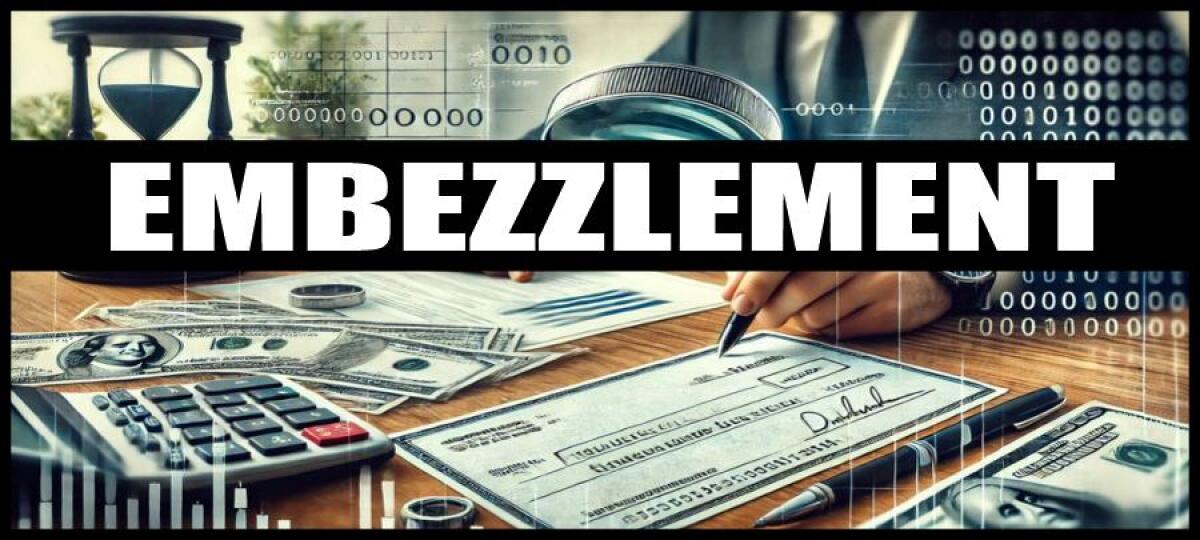- Wednesday, 11 February 2026
- Have a HOT TIP? Call 704-276-6587 or E-mail us At LH@LincolnHerald.com
Today In History – January 1
January 1 is the first day of the year

Today in History in 1908 – For the first time, at what is now Times Square in New York City, a ball is dropped at midnight at the start of the New Year.
The On This Day In History archives at “Simple English Wikipedia, The Free Encyclopedia” contains over 200,000 events, birthdays and deaths from 6,000 years of history. Here is a roundup of a few of them:
January 1 is the first day of the year in the Gregorian calendar. There are 364 days remaining until the end of the year (365 in leap years). This day is also known as New Year's Day since the day marks the beginning of the year.
EVENTS
153 BC – Roman consuls begin their year in office.
45 BC – The Julian calendar is first used.
193 – The day after Commodus is murdered, the Roman Senate chooses Pertinax to succeed him as Roman emperor.
1001 – Stephen I is named as the first King of Hungary by Pope Sylvester II.
1438 – Albert II of Habsburg is crowned King of Hungary.
1502 – Exploration of the place where Rio de Janeiro is now. The name means "River of January". It is named because its bay was mistaken for a river.
1515 – Francis I becomes King of France.
1600 – Scotland begins its numbered year on January 1 instead of March 25.
1651 – Charles II becomes King of Scotland.
1660 – Samuel Pepys starts writing his famous diary.
1700 – Russia starts using Western numbers for its calendar.
1707 – John V becomes King of Portugal.
1739 – Bouvet Island in the South Atlantic Ocean is discovered by Frenchman Jean-Baptiste Charles Bouvet de Lozier.
1776 – American Revolutionary War: Norfolk, Virginia is burned by combined Royal Navy and Continental Army action.
1781 – The Iron Bridge built from plans by Abraham Darby III in Coalbrookdale on the England–Wales border, is officially opened.
1788 – In London, the first issue of The Times newspaper is printed.
1800 – The Dutch East India Company ends.
1801–1900
1801 – The Act of Union 1800 begins to have effect and the United Kingdom of Great Britain and the Kingdom of Ireland join to make the United Kingdom of Great Britain and Ireland.
1801 – Giuseppe Piazzi discovers the dwarf planet Ceres in the Solar System's asteroid belt.
1804 – France stops ruling Haiti. Haiti becomes independent.
1808 – The United States makes a law making it illegal to bring slaves from other countries.
1810 – Lachlan Macquarie becomes Governor of New South Wales.
1833 – The United Kingdom claims the Falkland Islands.
1845 – The Philippines adopt the Gregorian calendar, with the International Date Line being shifted to its east. December 31, 1844 is skipped.
1860 – Floods in Araluen and Braidwood, New South Wales kill 24 people.
1860 – The first Polish postage stamp is issued.
1863 – Abraham Lincoln signs the Emancipation Proclamation during the second year of the American Civil War.
1873 – Japan starts using the Gregorian calendar.
1874 – The Bronx becomes part of New York City.
1877 – Queen Victoria is given the title of Empress of India.
1880 – Workers start building the Panama Canal.
1885 – Twenty-five countries adopt Sandford Fleming's proposal for Standard time (time zones).
1890 – In East Africa, the Italian Colony of Eritrea is founded.
1892 – Ellis Island starts to take people moving to live in the United States.
1894 – In England, the Manchester Ship Canal is officially opened.
1897 – Brooklyn joins with New York City.
1898 – New York City and places around it join to make the City of Greater New York.
1899 – Spanish rule in Cuba ends.
1899 – Queens and Staten Island join with New York City.
1901–1950
1901 – Australia becomes self-governed.
1901 – Nigeria becomes a British protectorate.
1908 – For the first time, at what is now Times Square in New York City, a ball is dropped at midnight at the start of the New Year.
1911 – In Australia, the Northern Territory separates from South Australia and is transferred to Commonwealth control.
1912 – The Republic of China begins, under Sun Yat-sen.
1913 – The British Board of Censors is founded.
1927 – Turkey starts to use the Gregorian calendar.
1934 – Alcatraz becomes a federal prison.
1937 – Safety glass on vehicle windscreens becomes law in the United Kingdom.
1939 – A temperature of 45 degrees Celsius is recorded in Sydney, Australia, a record for the city.
1941 – In Austria, the Vienna Philharmonic Orchestra holds its first New Year's Day concert.
1942 – The Declaration of the United Nations is signed by 26 countries.
1945 – World War II: The German Luftwaffe launches Operation Bodenplatte to destroy Allied air power in northern Europe. The operation failed.
1947 – The Canadian Citizenship Act takes effect: Prime Minister of Canada William Lyon Mackenzie King becomes the first official Canadian citizen.
1947 – The Bizone is formed out of the British and American Occupation zones in Germany. This later becomes West Germany.
1948 – The Constitution of Italy takes effect.
1948 – The British Rail network is nationalized.
1949 – A UN ceasefire to stop the fighting in Kashmir takes effect.
1949 – Austria regains control of its border with Italy from the British.
1953 – A short-lasting republic is declared in the Maldives.
1956 – Sudan becomes independent.
1956 – Panic and a stampede at a New Year event at Yahiko Shrine, Yahiko, Niigata, Japan, kill at least 124 people.
1958 – Treaties creating the European Economic Community take effect.
1959 – Fidel Castro takes control in Cuba, as Fulgencio Batista flees Havana.
1960 – Cameroon becomes independent.
1962 – Western Samoa becomes independent.
1964 – Top of the Pops is first shown on the BBC. Its last show is in 2006.
1966 – The Australian dollar replaces the pound sterling as the official currency of Australia.
1966 – Jean-Bédel Bokassa becomes president of the Central African Republic.
1968 – Floods in Bahia, Brazil kill 200 people.
1971 – Cigarette advertisements are banned on American television.
1972 – Kurt Waldheim becomes Secretary-General of the United Nations.
1973 – The UK, Republic of Ireland and Denmark join the European Economic Community.
1978 – The Northern Mariana Islands' constitution becomes effective.
1978 – Air India Flight 855, a Boeing 747, crashes into the sea near Bombay, killing 213 people.
1979 – Diplomatic relations between the United States and the People's Republic of China begin.
1980 – Victoria, Crown Princess of Sweden becomes heir to the Swedish throne, as succession laws are changed.
1981 – Palau becomes self-governed.
1981 – Greece joins the European Economic Community.
1982 – Javier Pérez de Cuéllar becomes Secretary-General of the United Nations.
1984 – Brunei becomes independent.
1985 – Greenland leaves the European Community.
1986 – Spain and Portugal join the European Economic Community.
1986 – Aruba separates from Curaçao.
1990 – David Dinkins becomes the first African American mayor of New York City.
1992 – Boutros Boutros-Ghali becomes Secretary-General of the United Nations.
1993 – Czechoslovakia splits into Slovakia and the Czech Republic.
1994 – The North American Free Trade Agreement (NAFTA) takes effect.
1995 – Kiribati becomes the first country to enter the New Year, after the International Date Line is shifted to its east, skipping December 31, 1994.
1995 – Austria, Finland and Sweden join the European Union.
1995 – The World Trade Organisation is started.
1995 – The Draupner wave is detected in the North Sea off Norway, proving the existence of freak waves.
1997 – Kofi Annan becomes Secretary-General of the United Nations.
2000 – Start of the 3rd millennium.
2002 – The euro currency starts being used in 12 European Union member states.
2002 – Michael Bloomberg becomes Mayor of New York City.
2003 – Luiz Inácio Lula da Silva becomes President of Brazil.
2007 – Ban Ki-moon becomes Secretary-General of the United Nations.
2007 – Bulgaria and Romania officially join the European Union. Bulgarian, Romanian, and Irish become official languages of the European Union, joining 20 other official languages.
2007 – Slovenia starts to use the euro.
2007 – Adam Air Flight 574 disappears over Indonesia. It is later known to have crashed with 102 people on board.
2008 – Cyprus and Malta start to use the euro.
2009 – 66 people die in a nightclub fire in Bangkok.
2009 – Same-sex marriage officially becomes legal in Norway.
2009 – Slovakia starts to use the euro.
2010 – A suicide bombing at a volleyball game in Lakki Marwat, Pakistan, kills 105 people.
2011 – Estonia starts to use the euro.
2011 – Dilma Rousseff becomes President of Brazil.
2013 – A crush after a New Year celebration in Abidjan, Ivory Coast, kills over 60 people.
2014 – Latvia starts using the euro.
2014 – Bill de Blasio becomes Mayor of New York City.
2015 – Lithuania starts using the euro.
2015 – The Eurasian Economic Union enters into force. Its members are Russia, Belarus, Armenia, Kazakhstan and Kyrgyzstan.
2015 – Same-sex marriage officially becomes legal in Luxembourg.
2016 – The number of official regions in France (not including overseas territories) is cut from 22 down to 13.
2017 – 39 people are killed in a terrorist attack on a nightclub in Istanbul, Turkey.
2017 – Antonio Guterres becomes Secretary-General of the United Nations.
2017 – A prison riot in Manaus, Brazil, leaves at least 60 inmates dead.
2018 – California legalises cannabis for recreational use.
2024 – 2024 Sea of Japan earthquake in Noto Peninsula of Ishikawa Prefecture, Japan happans.

 Lincoln Herald Staff
Lincoln Herald Staff
















